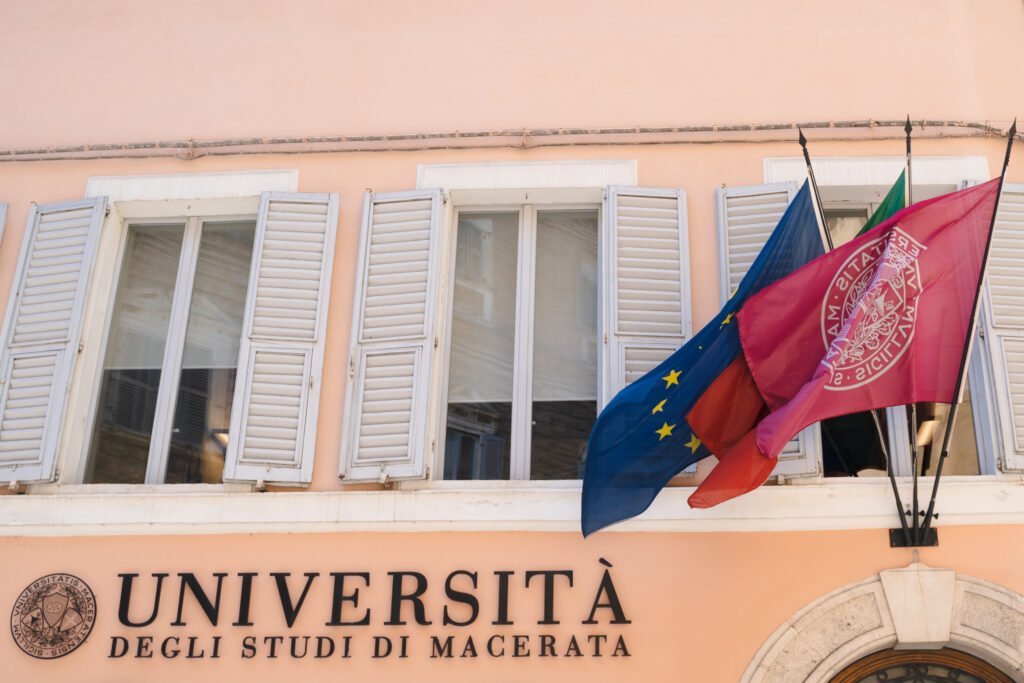The University of Macerata (UNIMC) – founded in 1290 – is among the oldest universities in Italy and the only one to have a focus entirely on humanities and socio-economic sciences (SSH). University’s motto “Humanism that innovates” illustrates its mission: to contribute to the development of people and society through the added value that social and human sciences bring to the understanding of complex socioeconomic and political issues, according to an interdisciplinary perspective. UNIMC enrols about 13000 students and permanently employs about 300 academics and 300 technical/administration staff. It includes five Departments: i) Law, ii) Political Science, Communication and International Relations, iii) Economics and Law, iv) Education, Cultural Heritage and Tourism, v) Humanities. In 2018, 2, out of 5, Departments were ranked as “Excellent” by the Italian Ministry of Research and University.
Students are offered a broad range of courses, including undergraduate (14 courses including 1 in English) and postgraduate degree programmes, Master’s (17 courses including 3 in English) and Ph.D. programmes (5 courses including 2 in English), specialisation schools (3 courses) and summer schools, double degree programs.
They can attend classes in cultural heritage, economics, philosophy, law, arts and humanities, languages, language mediation, communication, education, political science and tourism. The Giacomo Leopardi School of Advanced Studies offers excellent multidisciplinary teaching programmes for young and talented students. Thanks to the local Confucius Institute, the University of Macerata plays a leading role in promoting Chinese language and culture.
Internalization is a top priority of the University of Macerata: it is cross-cutting to both research and teaching activities, and constitutes a driver of innovation and improvement for both. The University of Macerata recognizes internationalisation as a driver of modernization for all the university’s core activities (teaching, research and third mission), as well as for the administrative processes. The University of Macerata is aware that education and research are necessary to create a knowledge-based society whose pillars are: freedom of expression; universal access to information and knowledge; respect for cultural and linguistic diversity; and quality education for all.

| Cookie | Duration | Description |
|---|---|---|
| cookielawinfo-checkbox-analytics | 11 months | This cookie is set by GDPR Cookie Consent plugin. The cookie is used to store the user consent for the cookies in the category "Analytics". |
| cookielawinfo-checkbox-functional | 11 months | The cookie is set by GDPR cookie consent to record the user consent for the cookies in the category "Functional". |
| cookielawinfo-checkbox-necessary | 11 months | This cookie is set by GDPR Cookie Consent plugin. The cookies is used to store the user consent for the cookies in the category "Necessary". |
| cookielawinfo-checkbox-others | 11 months | This cookie is set by GDPR Cookie Consent plugin. The cookie is used to store the user consent for the cookies in the category "Other. |
| cookielawinfo-checkbox-performance | 11 months | This cookie is set by GDPR Cookie Consent plugin. The cookie is used to store the user consent for the cookies in the category "Performance". |
| viewed_cookie_policy | 11 months | The cookie is set by the GDPR Cookie Consent plugin and is used to store whether or not user has consented to the use of cookies. It does not store any personal data. |